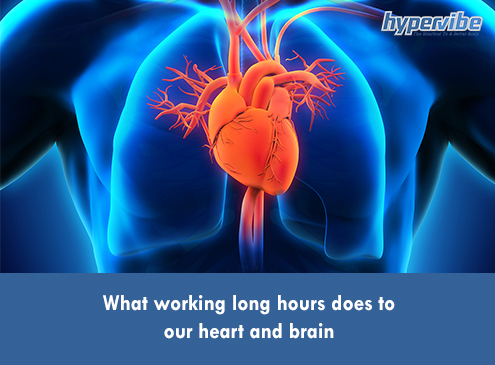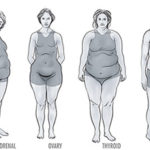
New research from The Ohio State University shows working long hours may increase the risk of chronic illnesses, including heart disease and cancer.
The study published in the Journal of Occupational and Environmental Medicine analyzed the relationship between chronic disease and hours worked over a 32-year period, showing that people who work more than 41 hours per week are more likely to develop sleep and digestive problems, are more stressed and experience fatigue more often. Their work performance is affected and their risk of heart disease, arthritis, diabetes and cancer is higher.
The study participants worked on average 41 to 50 hours per week (56%), 13% worked on average 51-60 hours, and 3% worked on average more than 60 hours per week, with the remaining participants working less than 40 hours per week.
An interesting finding is that men who worked long hours had a higher incidence of arthritis, while those who worked between 41 and 50 hours per week had a lower risk of depression, heart disease and lung disease than those with less than 40 hours of work per week.
For women, working more than 60 hours per week for over three decades tripled the risk of diabetes, heart disease, arthritis and cancer, the risk being higher in women who had to juggle multiple roles due to the increased stress levels.
These findings are not new. Last year, another study published in The Lancet found that people who work 55 hours or more are 30% more likely to have a stroke, and 13% more likely to develop a heart disease, compared to individuals with traditional 9-5 jobs. This study was carried out by scientists from different institutions in Europe, and was founded by international organizations like the Medical Research Council.
The follow-up period was 8.5 years for heart disease and 7.2 years for stroke, and the number of participants was more than 600,000 men and women for heart disease, who didn’t have any cardiovascular condition, respectively over 520,000 participants for stroke outcomes, who had no stroke history at enrollment.
But it’s not only the number of work hours that can have a negative impact on our health. When we work seems to matter just as much, as research indicates that shift hours can lead to a reduction in the quality and quantity of sleep, to fatigue, anxiety, depression, cardiovascular issues and gastrointestinal problems. The shortening of the sleep period, associated with working shift hours, leads to an increase in accidents, to sleepiness at work and poor performance, increased stress levels, poor diet, lack of exercise and higher risk of hypertension.
A better work-life balance and a work schedule that doesn’t interfere with the circadian rhythm could be the answer to these problems, but surveys show 1 in 3 full-time employees say maintaining a healthy balance between work hours and personal life has become more difficult in the last years. Technology doesn’t appear to make things easier, on the contrary, the constant use of cellphones and e-mails at home makes it more difficult and challenging to disconnect from work and leave work-related problems at the office.
Have something to add to this article? Comment below or join our Facebook community and share your thoughts with us!

Updated on: 08.09.2021 The lymphatic system is involved not only...

Stress can make you gain weight – we’ve heard this...

Various theories exist to answer this question. As you will...

Our series of whole body vibration machine exercise articles continues...

Both rebounding and jumping on a trampoline are excellent ways...